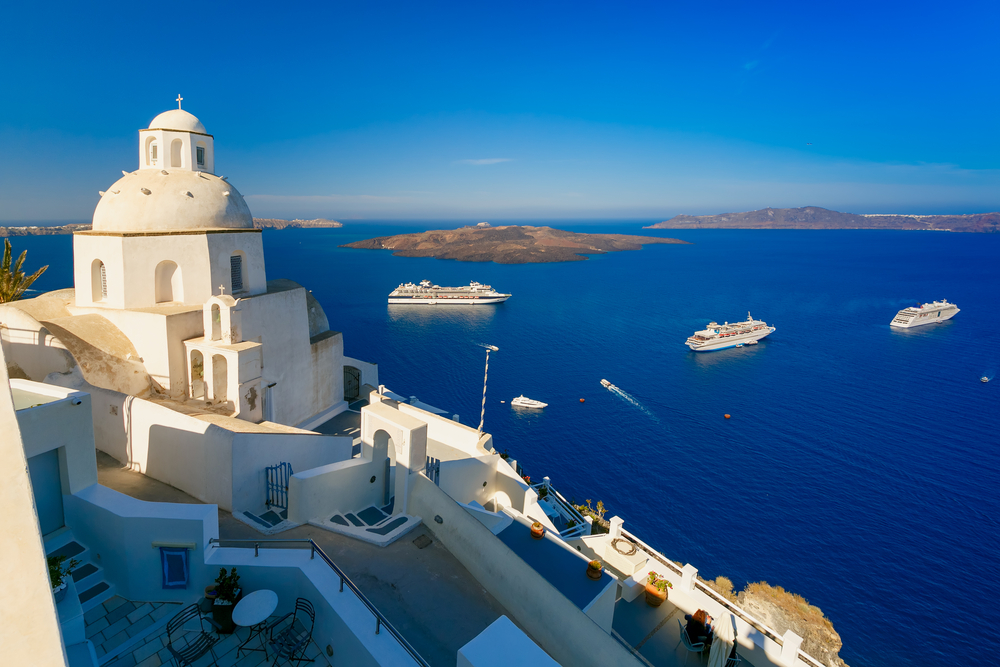Greece is set to introduce a €20 charge on cruise visitors to Santorini and Mykonos.
This initiative is aimed at tackling over-tourism and supporting local infrastructure.
Background and Implications of the Levy
Greece has initiated a €20 levy on cruise passengers disembarking at the renowned islands of Santorini and Mykonos, as announced by Prime Minister Kyriakos Mitsotakis. This strategic move comes in response to the immense pressure that cruise tourism places on these destinations, particularly during peak seasons. Mitsotakis emphasised that “Greece does not have a structural over-tourism problem.” However, he acknowledged significant challenges at certain hotspots during specific times of the year that necessitate intervention.
Economic Impact and Local Community Benefits
The tourism industry remains a cornerstone of the Greek economy, contributing to an astounding £20 billion in 2023 alone. With approximately 31 million arrivals, the significance of this sector is undeniable. The proceeds from the levy are intended to be reinvested into local communities, bolstering infrastructure and addressing the surplus demand each summer. By injecting funds back into these regions, the government aims to alleviate the impact of seasonal surges in visitor numbers.
The levy is only one part of a broader strategy to manage overtourism, alongside potential regulations like limiting the simultaneous arrival of multiple cruise ships. The Greek government is keen on implementing sustainable tourism practices that ensure the long-term viability of its top tourist spots.
Comparative Measures in European Tourism
Across Europe, popular destinations have grappled with the complexities of ballooning tourist numbers. In 2019, for instance, Venice took a decisive step by barring large cruise vessels from its Guidecca canal. More recently, Barcelona revealed plans to increase the tourist tax for cruise visitors spending less than 12 hours in the city.
Similarly, Amsterdam aims to relocate its cruise terminal from the city centre by 2035, addressing concerns over nuisance and the environmental footprint of tourism. These measures collectively highlight a growing trend among European cities to balance tourism benefits with societal and environmental costs.
The Environmental Considerations
Amidst plans to impose the levy, Greece is also exploring environmental regulations to guard its fragile ecosystems. Proposals include measures to prevent water shortages, a recurrent issue exacerbated by dense tourist seasons. By integrating environmental policies with tourism management strategies, Greece seeks to protect its natural assets while continuing to attract global visitors.
Such initiatives are crucial to preserving the unique landscapes and cultural heritage that underpin Greece’s appeal as a world-class destination. Stakeholders view these plans as vital steps towards sustainable tourism, ensuring that these breathtaking islands remain conducive to both locals and tourists alike.
Potential Challenges and Industry Response
Implementing the levy is not without its challenges. There is potential resistance from cruise operators concerned about the added costs to passengers, which might deter visitors. Balancing economic interests with sustainable tourism practices will require delicate negotiation and collaboration between government bodies and the cruise industry.
Despite these challenges, the initiative is largely viewed as a necessary step to maintain the quality of visitor experience while safeguarding the islands’ infrastructure and environment. Industry experts advocate for a collaborative approach to ensure the levy enhances rather than detracts from Greece’s tourism appeal.
Public and Industry Reactions
Initial reactions to the announcement of the levy have been mixed. While some stakeholders recognise the necessity of such measures, others argue it could affect cruise operators and passengers adversely. Social media platforms have buzzed with discussions, reflecting divergent views. Many industry insiders, however, acknowledge the need for balanced solutions that consider both economic viability and environmental stewardship.
Such discourse highlights the complexities involved in regulating tourism in a manner that respects both economic and environmental imperatives. Ultimately, open dialogue among all parties is essential in advancing towards sustainable and economically beneficial tourism practices.
Future Outlook for Greece’s Tourism Policies
The introduction of the €20 levy marks the beginning of a potentially new era in Greece’s tourism strategy. The government’s proactive stance in addressing overtourism is a welcome step towards sustainability. Future efforts are likely to build on this foundation, incorporating comprehensive policies that effectively distribute the benefits of tourism while safeguarding the country’s cultural and natural resources.
The €20 levy is an important step in balancing tourism growth with sustainable practices.
This measure reflects Greece’s commitment to preserving the allure of its iconic destinations.

